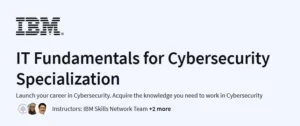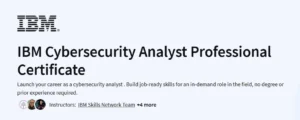What will you learn in AWS SysOps Certification Training for Administrators Course
Deploy and manage AWS EC2 instances and S3 buckets for scalable infrastructure
Monitor and automate resource consumption using CloudWatch, CloudTrail, and AWS Trusted Advisor
Implement cost-optimization techniques with tagging, AWS Config, and expenditure alerts
Use AWS CloudFormation and OpsWorks to create repeatable, version-controlled deployments
Program Overview
Module 1: AWS Overview
⏳ 2 hours
Topics: Cloud computing basics, AWS global infrastructure, service categories
Hands-on: Sign up for AWS Free Tier, navigate the Management Console, launch a basic EC2 instance
Module 2: Computing on AWS
⏳ 3 hours
Topics: Amazon Machine Images (AMIs), EC2 instance types, instance connectivity, website hosting on EC2
Hands-on: Launch and configure an EC2 instance, connect via SSH/RDP, deploy a simple static website
Module 3: Managing Resource Consumption & Configuration Management
⏳ 3 hours
Topics: Cost-optimization (tagging, Trusted Advisor), monitoring with CloudWatch/CloudTrail, configuration management with OpsWorks & AWS Config, foundational CloudFormation
Hands-on: Tag resources, set up CloudWatch alarms, create a CloudFormation stack to automate a multi-resource deployment
Get certificate
Job Outlook
The average annual pay for an AWS SysOps Administrator in the U.S. is $113,057 plus $13,157 cash bonus
Employment of network and systems administrators is projected to decline 3% from 2023 to 2033, though about 16,400 openings arise yearly due to retirements and turnover
Cloud-focused SysOps skills remain in demand as organizations migrate workloads to AWS, particularly in DevOps, automation, and security roles
Freelance and contract opportunities are available for AWS infrastructure management and cost-optimization projects
Specification: AWS SysOps Certification Training for Administrators Course
|
FAQs
- Basic AWS and Linux knowledge is recommended but not strictly mandatory.
- Hands-on labs guide learners through EC2, S3, CloudWatch, and CloudFormation.
- Prior experience helps in understanding advanced monitoring and cost optimization.
- The course focuses on practical SysOps tasks with exam alignment.
- Ideal for IT administrators looking to expand into cloud operations.
- Covers launching and configuring EC2 instances and S3 buckets.
- Teaches deployment of websites and scalable infrastructure.
- Includes monitoring and automation with CloudWatch and CloudTrail.
- Hands-on labs demonstrate version-controlled infrastructure using CloudFormation.
- Skills can be applied to enterprise AWS environments and real projects.
- Covers tagging, AWS Config, Trusted Advisor, and expenditure alerts.
- Hands-on labs show how to track resource consumption.
- Includes strategies for reducing cloud spending.
- Teaches best practices for monitoring performance and operational efficiency.
- Prepares learners for both practical SysOps tasks and certification exams.
- Curriculum is mapped to the SOA-C02 certification objectives.
- Includes exam-focused labs, practice tasks, and real-world scenarios.
- Teaches essential SysOps operations and troubleshooting on AWS.
- Hands-on exercises enhance understanding of core services.
- Prepares learners for both theoretical and practical aspects of the exam.
- Roles include AWS SysOps Administrator, Cloud Operations Engineer, and DevOps Associate.
- Freelance and contract opportunities in cloud infrastructure management are available.
- Average U.S. salary is around $113K plus bonuses.
- Skills are applicable in enterprises migrating workloads to AWS.
- Certification strengthens resumes for cloud operations and automation-focused roles.





